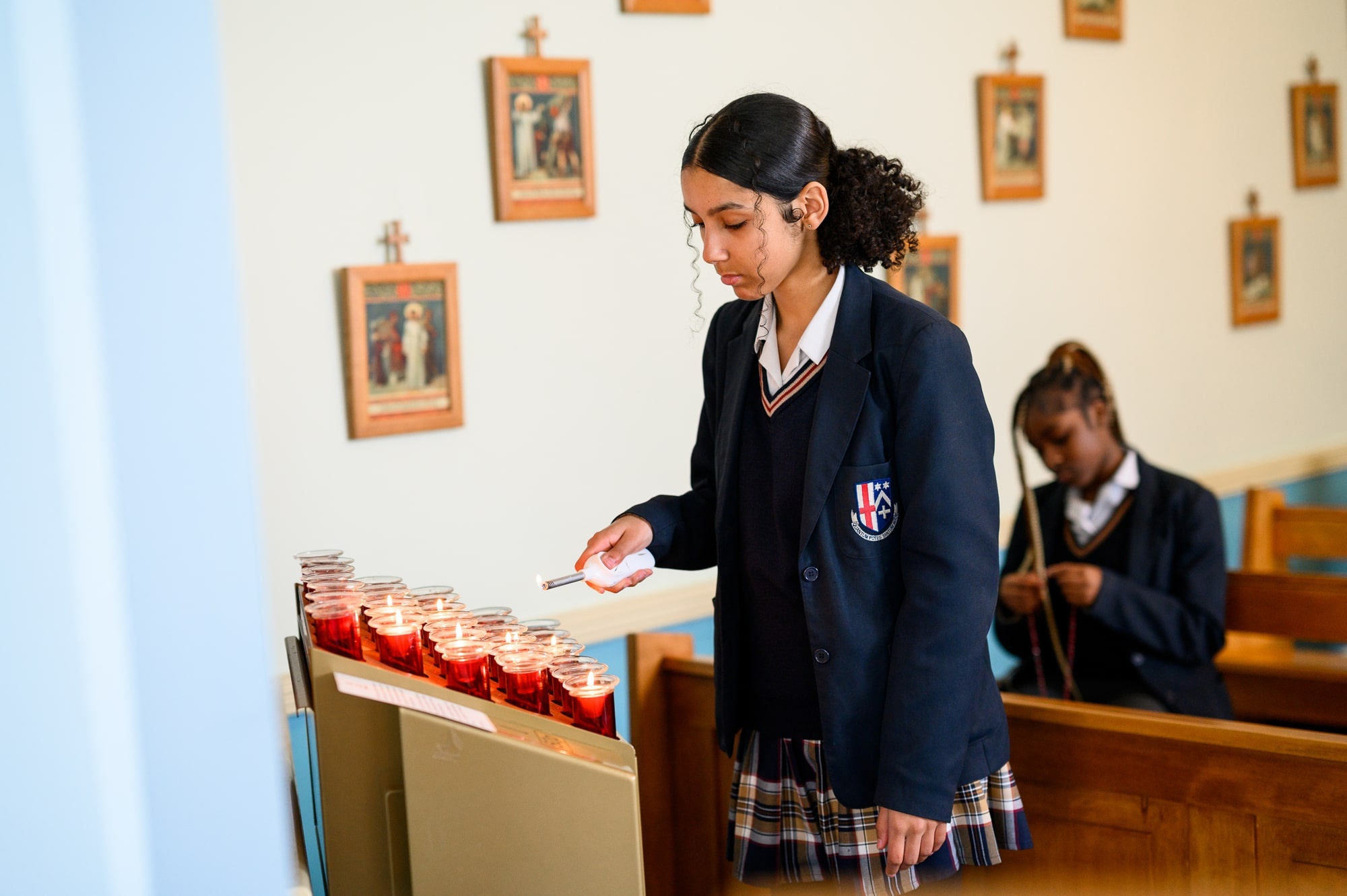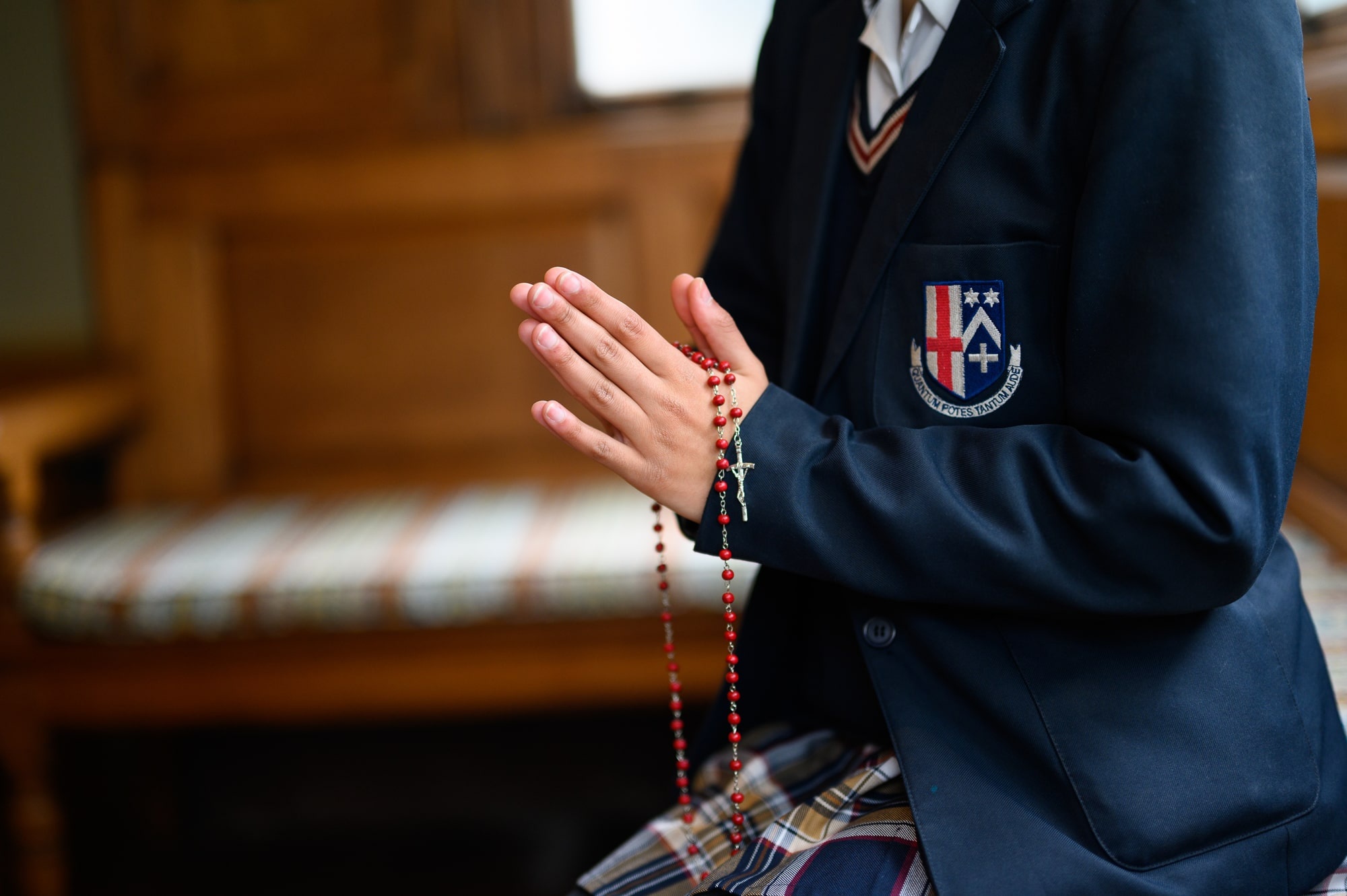
Religious Education
Religious Education is an integral part of the core curriculum, with students receiving three lessons per week for their studies. Allowing young people to explore their faith so they can make informed and mature decisions, no matter which religion or pathway they follow, is an important duty. RE lessons are fun and engaging, with teachers using a variety of resources and tasks that allow students to question, develop and respond to life's BIG questions.

Key Stage 3 (Years 7 - 9)
Source to Summit is a brand new KS3 course, comprising student books and digital Kerboodle resources, that have been cohesively planned to ensure full compliance with the new Religious Education Directory (RED). Each year group will explore the three monotheistic religions of Christianity, Judaism and Islam, from a perspective of key beliefs and practices. In KS3 students will also be introduced to the dharmic religion of Hinduism.
Students will be introduced to the academic rigour of Religious Education through the medium of Theology, Philosophy and Ethics. Underpinning this there is always the opportunity for students to explore their own faith and relationship with God and others.

GCSE (Years 10 & 11)
Students follow AQA Religious Studies B, Catholic Christianity, GCSE syllabus. Students' main area of focus is the Catholic faith, and the RE GCSE will allow them to explore Catholicity in great depth and detail. The topics of Creation, Incarnation, The Triune God, Redemption, Church and Eschatology will be studied. Following this, students will engage with religious, philosophical and ethical issues relating to relationships and families, and peace and conflict. The GCSE also includes a study of Jewish key beliefs and practices. The course is based on the Catholic tradition, however, students are encouraged to reflect upon Christian doctrine in the light of their own faith.
Trips & Activities
Students throughout the year groups have visited a variety of religious places of worship such as St. George's Cathedral, Westminster Cathedral and the local synagogue. Year 7 pupils also experienced the calming and restorative nature of Wintershall on a pilgrimage to take part in the Stations of the Cross.
As well as participating in trips, year 11 students take part in an RE revision conference with Catholic schools from the Diocese of Southwark hosted by Bishop Challoner.
Extra Curriculum
Debate Club is an opportunity to examine philosophical and ethical issues in more depth and next academic year this will be combined with Mock Trial Club to enable students to develop their evaluative skills that are so important for the GCSE exams. Topics include 'Is it more important to be good than to be happy?' and 'Does everything happen for a reason?'
"Catholic education aims not only to communicate facts, but also to transmit a coherent, comprehensive vision of life, in the conviction that the truths contained in that vision liberate students in the most profound meaning of human freedom." - POPE JOHN PAUL II


